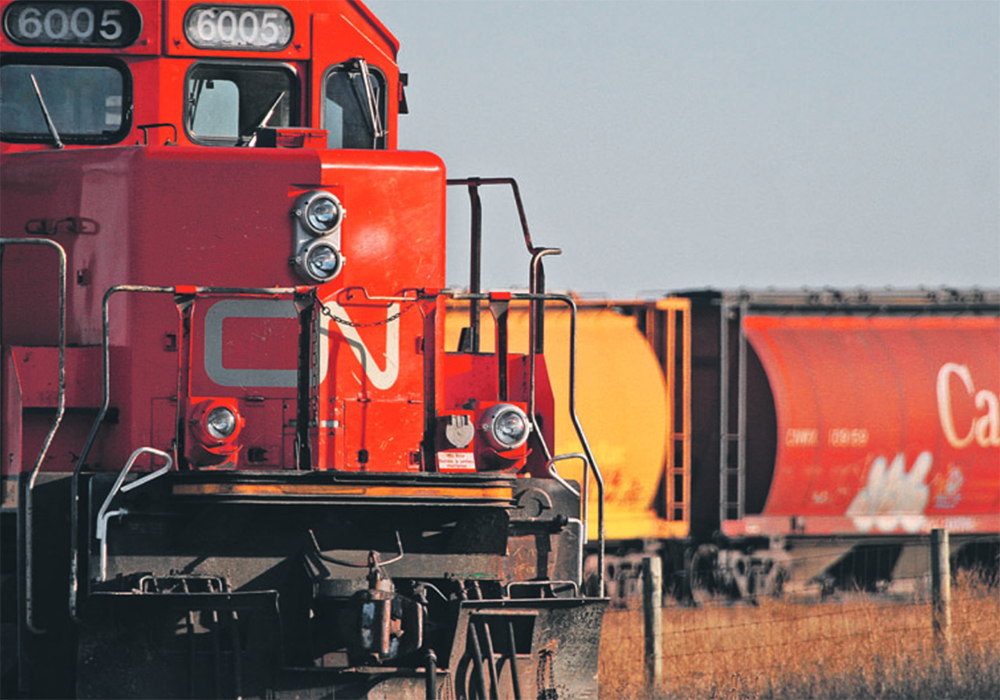Canada’s largest railway company says it expects western Canadian grain to continue to move at a brisk pace in June and July after spring seeding operations have wrapped up.
Canadian National Railway’s Sean Finn, executive vice-president of corporate services, says a combination of factors led to greater-than-expected grain volumes on CN’s Canadian freight network in March and April.
Those factors include recent capital investments that have led to a more resilient rail network in Western Canada.
Reduced demand for rail freight services from other segments of the economy, primarily due to COVID-19, has also opened up additional rail capacity for grain.
Read Also

Farming Smarter receives financial boost from Alberta government for potato research
Farming Smarter near Lethbridge got a boost to its research equipment, thanks to the Alberta government’s increase in funding for research associations.
“We often measure our performance in grain by cars spotted,” Finn said earlier this month.
“This time of year, we should be spotting 5,500 cars (per week). Well last Saturday (May 9), we spotted 7,800 cars in the week so … we’ve been spotting a lot of cars and it’s not just due to the railway. That’s the supply chain performing throughout … the farmers on the trucks, the grain companies elevating the grain and loading it into a grain car for us and then us moving it to port.”
Finn also gave credit to CN employees, who have continued to come to work throughout the pandemic.
CN moved record amounts of Canadian grain through the month of April and in the first quarter of the 2020 calendar year.
“Our employees have come to work every day. They’ve operated their trains safely and we can’t take that for granted,” Finn said.
“Our employees deserve a big thank you and a shout out.”
Commercial grain deliveries typically slow down during Western Canada’s busy spring seeding season.
But once growers are finished planting this year’s crop, CN is expecting the brisk pace of grain shipments to continue through to the end of the 2019-20 crop year, ending July 31.
Finn said the company was well positioned to respond to the challenges posed by the COVID pandemic.
It began preparing for the pandemic early in the calendar year, long before social distancing directives began to impact other segments of the economy.
Steps were taken to enhance worker safety and ensure that employees could carry out their duties in a healthy environment with minimal disruptions.
Finn said CN continues to move all types of cargo, including consumer goods, but he acknowledged that demand from some sectors has slowed.
“The fact that there are some slower commodities, crude being one of them … that’s created some room for us to run more (grain) trains and increase even more our throughput of grain,” Finn said.
Slower demand has also allowed CN to perform more track maintenance without affecting train movements.
The company will be watching to see how international trade flows might be impacted by COVID.
“We often say that the world wants to consume what Canada grows,” said Finn.
“I think that maybe COVID-19, on a global perspective, will re-open some markets that weren’t there before and therefore could add traffic …
“If there’s one thing to look out for, it’s making sure that we at CN — and also the overall supply chain — is nimble enough to react to markets that are coming back or new markets that are opening up.”


















